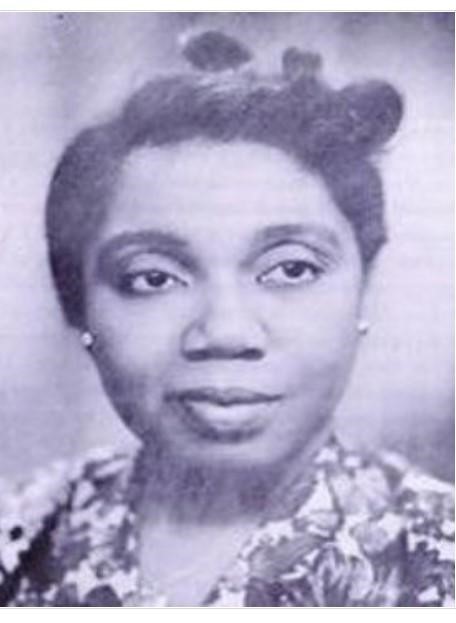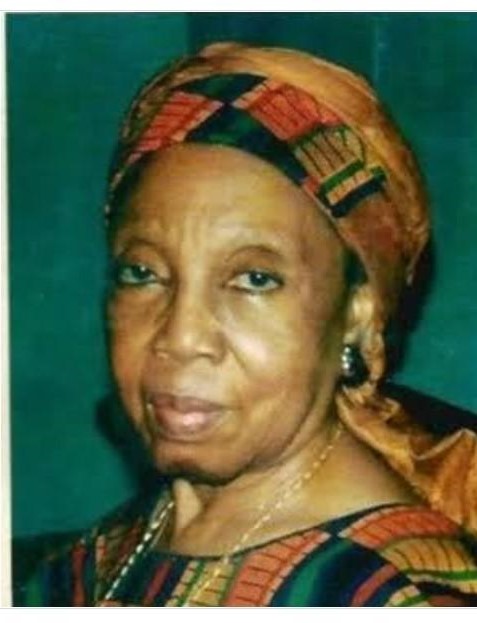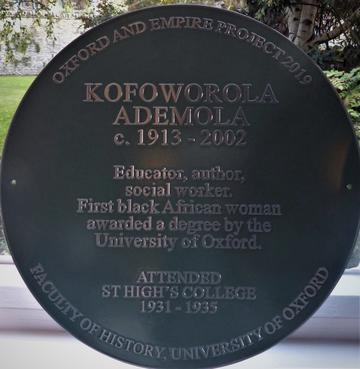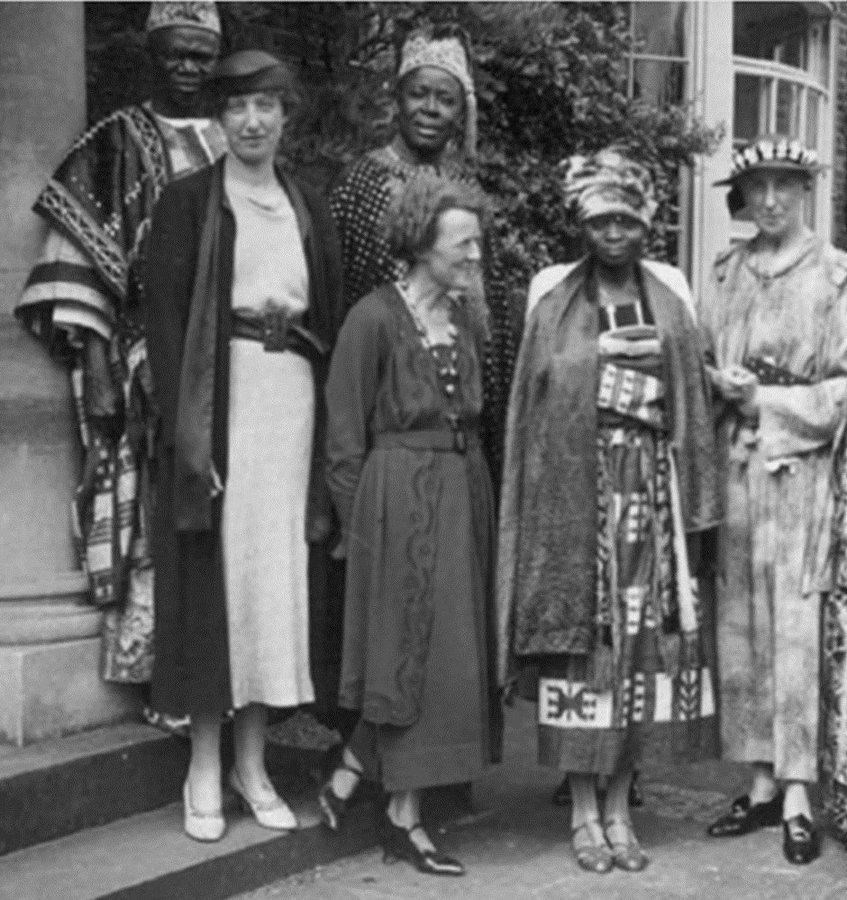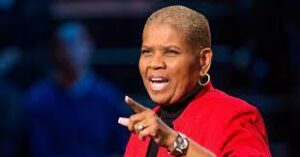Oloori Kofoworola “Kofo” Aina Ademola
Lady Ademola MBE, MFR, OFR
Lady Kofoworola Ademola was a Nigerian educationalist, writer and advocate for women’s education. As the first Black African woman to be awarded a degree from the University of Oxford, Kofo understood the necessity for women’s education and for international and intercultural relationships.
21 May 1913
15 May 2002
Lagos, Nigeria
Nigerian
1932 – begins to study in Oxford University
1935 – graduates from Oxford University in English Literature and Education
1935 – took up appointment as a teacher at Queen’s College, Lagos, Nigeria
1936 – her writing challenging British African stereotyping is published
1939 – she married Adetokunbo Ademola, a civil servant. They had five children
1945 – New Era College and became a member of the Board.
1945 – she helped set up Oriel Girls’ School, a new secondary modern, where she became the school’s joint principal.
1953 – now with four children, Kofo accepted a fulltime post as secretary to the Western Regional Development Production Scholarship Board, playing a part in the preparation for the free primary school education scheme, which was established in the West
1958 – Kofo was elected first president of Nigeria’s National Council of Women’s Societies
1959 – awarded an MBE in Britain and an Order of the Federal Republic (OFR) in Nigeria
1962 – becomes a member of the Board of Directors of the United Bank of Africa (formerly the British and French Bank)
1996 – an authorized biography of Kofoworola Aina Ademola, Gbemi Rosiji’s Portrait of a Pioneer published
2002 – died aged 88 after a short illness
March 2020 – St Hugh’s College unveiled a picture of Kofo Ademola as part of a celebration of her life and legacy
She spent half of her youth in Lagos and the other half in the UK and US. . Ademola was educated at CMS Girls School, Lagos; Vassar College, New York; Portway College, Reading.
Kofo was born to the family of the Lagos lawyer Omoba Eric Olawolu Moore, a member of an Egba royal family.
From 1931 to 1935 she studied at St Hugh’s College, Oxford, where she earned a degree in education and English. Whilst at St Hugh’s she wrote a 21-page autobiography at the insistence of Margery Perham to challenge British stereotypes about Africans. She wrote of her childhood as a mixture of western cultural orientation and African orientation.
She did not report overt racism while in Britain but expressed annoyance at “being regarded as a curio or some weird specimen of Nature’s product, not as an ordinary human being” and at “ineffectual remarks about our amazing cleverness at being able to speak English and at being able to wear English clothes”. Ademola returned to Nigeria in 1935 and took up an appointment as a teacher at Queens College. While in Lagos she participated in some women organisations such as YWCA.
Kofo was soon appointed to a teaching role, firstly as a tutor in English and Civics at the small girls’ school, Queen’s College, Lagos, where she taught between 1936-8. A memorable refrain of her teaching there was `Brains have no sex … You can do as well and even better than some boys. You have brains too.’ Marriage to the eminent magistrate Adetokunbo Ademola (1906-93) in 1939 took her to Warri in the Delta, where she taught English between 1939-44 to a group of 10-12 year old boys at Government College, Ughelli. A move to St Anna, Lagos in 1945 offered her a new opportunity, this time at New Era College, where she taught for a year, and became a member of the Board. During this period, she also helped to set up Oriel Girls’ School, a new secondary modern, where she became the school’s joint principal.
In 1953, now with four children, Kofo accepted a fulltime post as secretary to the Western Regional Development Production Scholarship Board. Here she played a part in the preparation for the free primary school education scheme, which was established in the West with success. Despite the demands of work and family, Kofo was elected as the National President of the National Council of Women’s Societies. Day nurseries, art and craft centres, adult education, family planning, and scholarship awards were just some of the examples of projects dedicated to uplifting and empowering women.
Kofoworola was awarded an MBE in 1959 in recognition of her contribution to voluntary social service in Western Nigeria. Voluntary and social work would be a keynote of her later years. Her many roles included: Director of the Western Region of the Red Cross, membership of the Executive Committee of the Nigerian Girl Guides Association, membership of the Lagos University Provisional Council and an appointment in 1962 as a member of the Board of Directors of the United Bank of Africa (formerly the British and French Bank).
At the age of 82 Kofoworola happily reflected that many of her fellow country women had risen to the very pinnacle. Her self effacing nature belied her role as a pioneer in blazing a trail for women to shape their own futures. “Someone had to be first,” she would humbly remark elsewhere.
Credits
Lady Kofoworola Ademola: Educator and Advocate for Women’s Education and Social Reform | Faculty of English (ox.ac.uk)
Kofoworola Ademola [c. 1913-2002] | Oxford and Empire Network
Kofoworola Ademola: the first Black African woman graduate from Oxford University – Museum of Oxford
Kofoworola Ademola – Wikipedia
Meet Kofoworola Ademola First African And Nigerian Woman To Earn A Degree In Oxford University (wordpress.com)
Links to wider Resources:
Lady Kofo Ademola books and biography | Waterstones
Fallen Legal Heroes – Sir Adetokunbo Ademola – DNL Legal and Style
